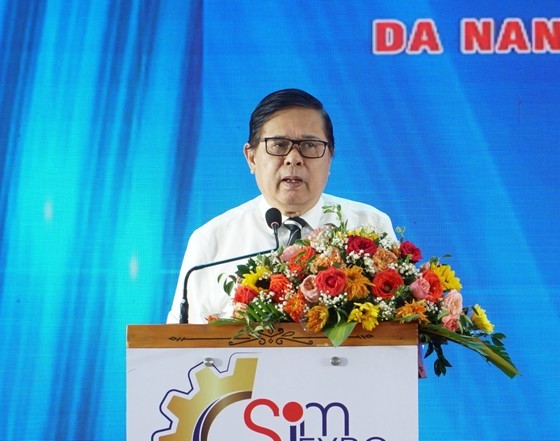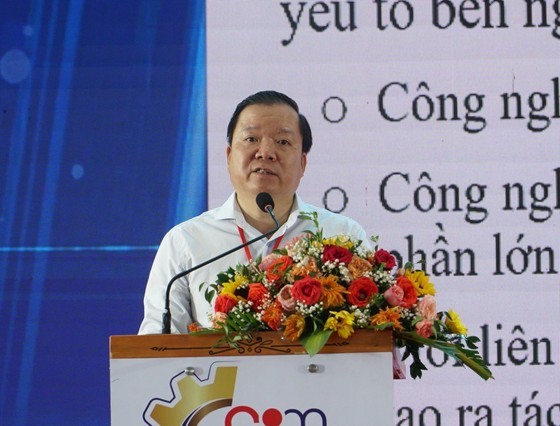 |
Connections between businesses are considered an indispensable part (Photo: SGGP) |
Accordingly, the domestic manufacturing and processing industry accounts for 16 percent of GDP. In 2022, Vietnam has 6,000 businesses working in the supporting industry, 88 percent of which are small and medium-sized enterprises.
 |
Chairman Do Huu Hao of the Vietnam Mechanical Association is delivering his presentation (Photo: SGGP) |
At present, the supporting industry in the country still faces various obstacles. Chairman Do Huu Hao of the Vietnam Mechanical Association said that the supporting industry cannot satisfy the demands of the manufacturing and assembling industries, especially when providing machine parts for corporations with foreign investment.
The number of specialized companies is limited, plus most businesses in this industry are of small scale and thus are not capable of improving their production technologies. Adding to that is the inadequate level of both workers and company leaders even though this factor is the key to deciding proper trading strategies as well as operation methods.
 |
Deputy Director General Pham Tuan Anh of the Industry Agency is making his speech (Photo: SGGP) |
Deputy Director General Pham Tuan Anh of the Industry Agency (under the Ministry of Industry and Trade) informed that there are no specialized laws for the industries of manufacturing, processing, and supporting. Other related policies, strategies, plans for the development of the industry sector and its sub-sectors in particular are rather inadequate, whereas policies to direct and help the growth of industry are ineffective.
To tackle the problems, meeting participants proposed making policies for the growth of the supporting industry more practical, developing strategies to help exports of key industrial products, establishing a linkage cluster between the mechanical engineering industry and the supporting one in the Central region, allocating suitable resources for the growth of foundation industries, logically exploiting current resources.
























